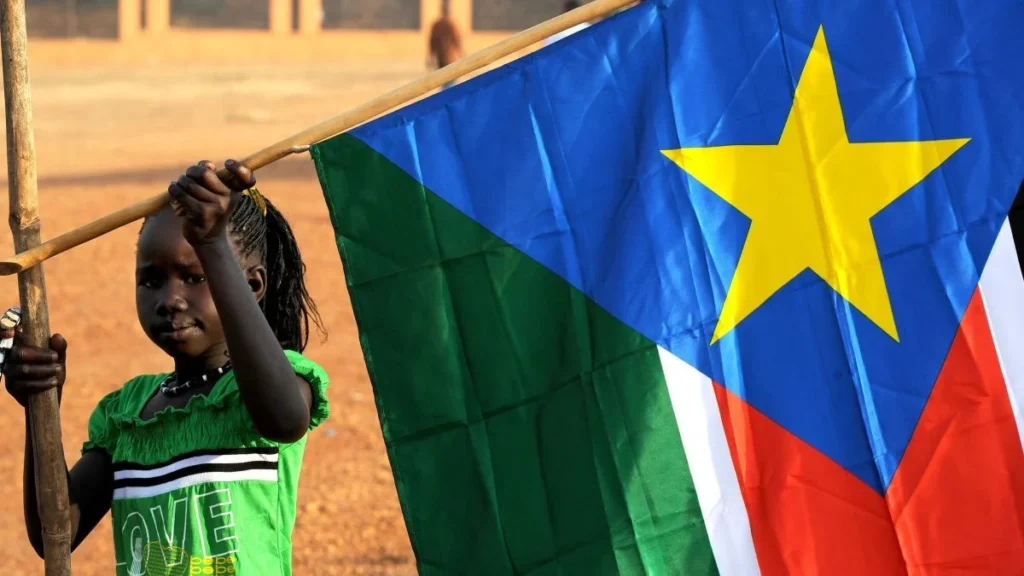- The IMF has identified South Sudan, Burundi, and the DRC as East African Community member states poised for significant economic growth in the 2024–2025 period.
- GDP growth in Burundi is projected to increase from 4.3 to 5.4 percent and in the DRC from 4.7 to 5.7%.
- Kenya leads regionally with a projected GDP of $104 billion, ranking 7th overall among the continent’s largest economies.
The economic outlook for East African Community member states South Sudan, Burundi, and the Democratic Republic of the Congo (DRC) is poised for significant economic growth in the 2024–2025 period. This prognosis by the International Monetary Fund (IMF) comes despite these nations grappling with conflicts, marking them as among the most fragile in the region.
In its latest regional economic outlook report for Sub-Saharan Africa, the IMF forecasts a noteworthy 1.2 percent gross domestic product (GDP) growth for South Sudan, from 5.6 to 6.8 percent, despite ongoing economic disruptions and humanitarian support challenges caused by the neighboring conflict in Sudan.
Similarly, GDP growth in Burundi is projected to increase from 4.3 to 5.4 percent and in the DRC from 4.7 to 5.7 percent. Surprisingly, these three conflict-affected countries are expected to outperform their peers, although the report does not delve into specific reasons for this optimistic outlook.
Sub-Saharan Africa economic outlook
On the other hand, four out of the remaining five EAC countries are forecast to experience growth rates below 1 percent, with Kenya and Rwanda having the lowest trajectory forecasts at 0.1 and 0.3 per cent, respectively. However, Kenya still leads in terms of GDP estimates for 2024, with a projected GDP of $104 billion, ranking 7th overall among the continent’s largest economies. Tanzania stands as the only other EAC country in the top 10 for Africa, with a current GDP estimate of $79 billion.
The report, unveiled during the annual IMF-World Bank Spring Meetings in Washington, D.C., acknowledges the gradual improvement in economic prospects across sub-Saharan Africa following the global downturn induced by the COVID-19 pandemic. GDP growth across the region is expected to reach 4.0 percent in 2025, reflecting a steady increase from 3.4 percent in 2023 to 3.8 per cent in 2024.
However, it cautions that risks persist as governments grapple with financing shortages, high borrowing costs, and impending debt repayments. The report stresses the need for additional support from the international community to ensure a more sustainable future for the region.
The IMF highlights the challenges faced by countries like the DRC and South Sudan, both grappling with tough security situations. The ongoing conflict in the eastern part of the DRC poses a significant threat to its economy, with long-term repercussions anticipated.
Moreover, despite Burundi’s positive economic forecast for 2025, the report does not provide detailed explanations. However, a separate IMF assessment conducted in January noted a rebound in Burundi’s real GDP growth and projected a stronger economic recovery in the coming years.
South Sudan at risk of debt distress and the need for reform
The IMF commends the efforts of the South Sudanese government in maintaining macroeconomic stability, despite challenges. However, it notes the country’s high risk of debt distress and the need for reform in fiscal management.
Similarly, the DRC has undergone significant reforms in recent years to stabilize its macroeconomic environment. The IMF acknowledges the government’s commitment to these reforms and expresses a willingness to engage in further discussions for future support programs.
In the context of the EAC, regional cooperation plays a crucial role in fostering economic growth and stability. Despite the challenges faced by individual member states, the EAC presents opportunities for collective advancement through trade, investment, and shared resources.
The IMF’s regional economic outlook report underscores the potential benefits of regional integration for the EAC. By leveraging each other’s strengths and resources, member states can mitigate risks and enhance their resilience to external shocks. This collaborative approach not only fosters economic development but also promotes peace and stability in the region.
Moreover, the EAC’s commitment to promoting intra-regional trade and investment further enhances its economic prospects. Initiatives such as the East African Customs Union and the Common Market facilitate the movement of goods, services, and capital across borders, creating a conducive environment for business growth and investment.
However, challenges remain in fully harnessing the potential of regional cooperation. Issues such as trade barriers, infrastructural deficits, and political tensions can hinder progress and impede economic integration efforts. Addressing these challenges requires sustained commitment from EAC member states, as well as support from international partners like the IMF.
Read also: The IMF Approves an Additional $5 Billion Rescue Package for Egypt
Regional cooperation and integration
In light of the IMF’s projections for the EAC, there is a clear imperative for policymakers to prioritize regional cooperation and integration efforts. By strengthening institutions, promoting trade facilitation, and investing in infrastructure development, the EAC can unlock its full economic potential and create opportunities for inclusive growth and development.
Furthermore, enhancing collaboration in areas such as education, healthcare, and technology can also contribute to the region’s long-term prosperity. By investing in human capital and innovation, the EAC can build a competitive advantage in the global economy and improve the quality of life for its citizens.
